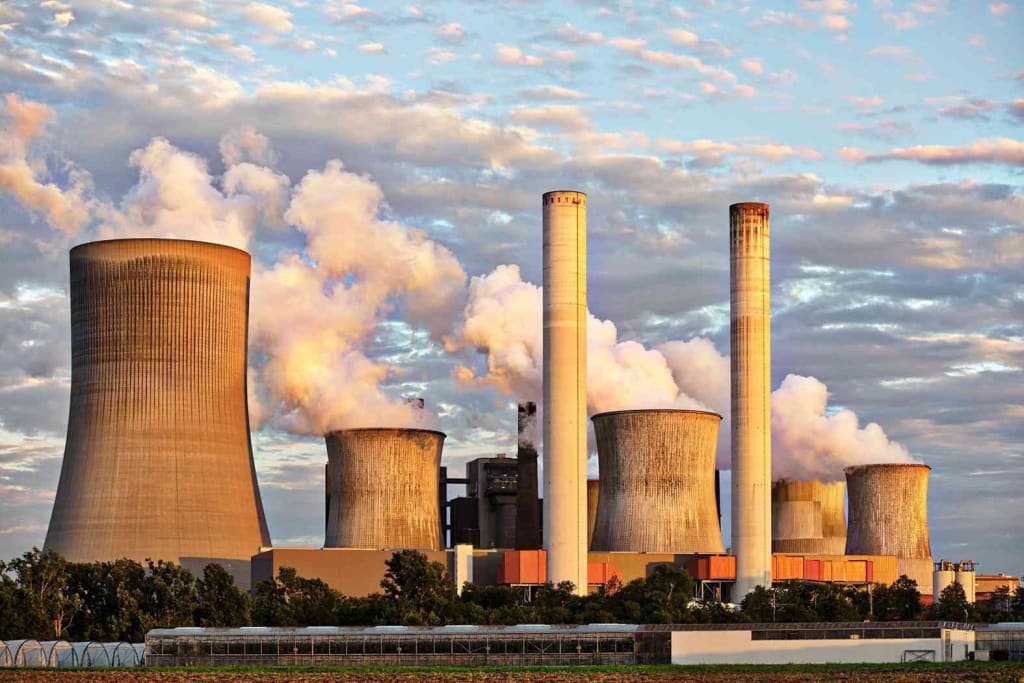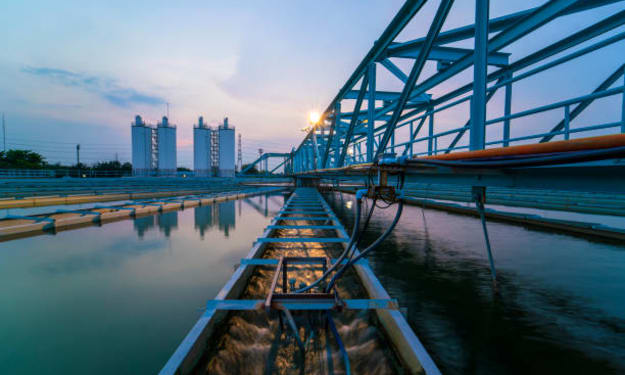Content warning
This story may contain sensitive material or discuss topics that some readers may find distressing. Reader discretion is advised. The views and opinions expressed in this story are those of the author and do not necessarily reflect the official policy or position of Vocal.
Tackling Pollution: A Call to Preserve Our Planet's Future.
Pollution has emerged as one of the most critical global challenges of our time, threatening the well-being of both the planet and its inhabitants. From air and water pollution to soil contamination and noise disturbances, the consequences of pollution are extensive and far-reaching. In this article, we delve into the causes and effects of pollution, emphasizing the urgent need for collective action to mitigate and reverse its destructive impact. By understanding the gravity of the situation and exploring effective solutions, we can pave the way towards a sustainable future.

Introduction:
Pollution has emerged as one of the most pressing global challenges of our time, posing a significant threat to the health and well-being of both humanity and the planet. From air and water pollution to soil contamination and noise disturbances, the impacts of pollution are wide-ranging and far-reaching. In this article, we will explore the causes and consequences of pollution, highlight its detrimental effects on ecosystems and human health, and discuss the urgent need for collective action to mitigate and reverse its devastating effects.
Understanding Pollution:
Pollution can be defined as the introduction of harmful substances or energy into the environment, resulting in adverse effects. It can originate from various sources, both natural and human-induced. Natural sources include volcanic eruptions, forest fires, and dust storms, while human activities such as industrial processes, transportation, agriculture, and waste disposal are major contributors to pollution.
Types of Pollution:
Air Pollution: The release of harmful gases and particulate matter into the atmosphere leads to air pollution. Combustion of fossil fuels, industrial emissions, vehicle exhaust, and indoor pollutants like tobacco smoke all contribute to this form of pollution. Fine particulate matter, nitrogen dioxide, sulfur dioxide, and volatile organic compounds are among the most common air pollutants. Prolonged exposure to polluted air can cause respiratory problems, cardiovascular diseases, and even premature death.
- Water Pollution: The contamination of water bodies by toxic substances, chemicals, and pollutants disrupts aquatic ecosystems and threatens human health. Industrial waste discharge, improper sewage disposal, oil spills, and agricultural runoff containing pesticides and fertilizers are major contributors to water pollution. It not only affects the availability of clean drinking water but also harms marine life and ecosystems, leading to a loss of biodiversity and ecological imbalance.
- Soil Pollution: Soil pollution occurs when hazardous substances, including heavy metals, pesticides, and industrial waste, accumulate in the soil, rendering it unsuitable for agriculture and posing risks to human health. Improper waste disposal, excessive use of agrochemicals, and industrial activities are the primary causes of soil pollution. This type of pollution reduces soil fertility, contaminates crops, and can enter the food chain, threatening food security and human well-being.
- Noise Pollution: Noise pollution refers to the excessive or disturbing sound that disrupts the natural environment and causes adverse effects on human health. Traffic noise, construction activities, industrial machinery, and loud music are common sources of noise pollution. Prolonged exposure to high noise levels can lead to hearing loss, sleep disturbances, stress, and impaired cognitive function.
Consequences of Pollution:
The consequences of pollution are manifold and impact various aspects of life on Earth:
- Environmental Impact: Pollution poses a severe threat to ecosystems, disrupting delicate balances and causing species extinction. Contaminated air, water, and soil harm plants, animals, and microorganisms, leading to a decline in biodiversity. Pollutants can accumulate in the food chain, affecting predators and eventually humans.
- Human Health Effects: Pollution-related illnesses and diseases are a significant burden on global public health. Air pollution is linked to respiratory disorders, heart disease, and lung cancer. Waterborne diseases, including cholera and dysentery, are prevalent in areas with inadequate sanitation. Exposure to pesticides and contaminated soil can cause long-term health problems.
- Economic Consequences: Pollution imposes substantial economic costs on societies. Healthcare expenses related to pollution-related diseases strain healthcare systems. Loss of productivity due to illness and environmental degradation hinders economic growth. The tourism industry also suffers when pollution tarnishes natural attractions.
Conclusion:
Pollution is a global crisis that demands immediate attention and action. The devastating effects of pollution on ecosystems, human health, and the economy highlight the urgent need for comprehensive solutions. It is imperative for governments to enact stringent environmental regulations and enforce them effectively. Industries must adopt cleaner technologies and implement sustainable practices to minimise their environmental footprint. Additionally, individuals can contribute to the fight against pollution by making conscious choices in their daily lives, such as reducing waste, conserving energy, and opting for environmentally friendly transportation.
Education and awareness play a crucial role in addressing pollution. By fostering a sense of responsibility and promoting environmental literacy, we can empower individuals and communities to make informed decisions and actively participate in pollution prevention. Collaborative efforts between governments, organisations, and citizens are vital to finding innovative solutions, investing in clean technologies, and supporting research and development.
International cooperation is key in tackling pollution on a global scale. Countries must come together to share knowledge, resources, and best practices, as pollution knows no boundaries. Through partnerships, we can develop sustainable policies, fund clean energy projects, and promote the adoption of eco-friendly practices worldwide.
It is important to recognise that addressing pollution is not only an environmental imperative but also a moral obligation. We have a responsibility to future generations to leave behind a clean and healthy planet. By taking action now, we can mitigate the harmful effects of pollution, restore ecosystems, and ensure a sustainable future for all.
In conclusion, pollution is a grave threat that requires immediate and collective action. Let us strive towards a pollution-free world by embracing sustainable practices, advocating for change, and preserving the precious resources our planet offers. Together, we can make a difference and safeguard the health and well-being of current and future generations. The time to act is now.






Comments
There are no comments for this story
Be the first to respond and start the conversation.